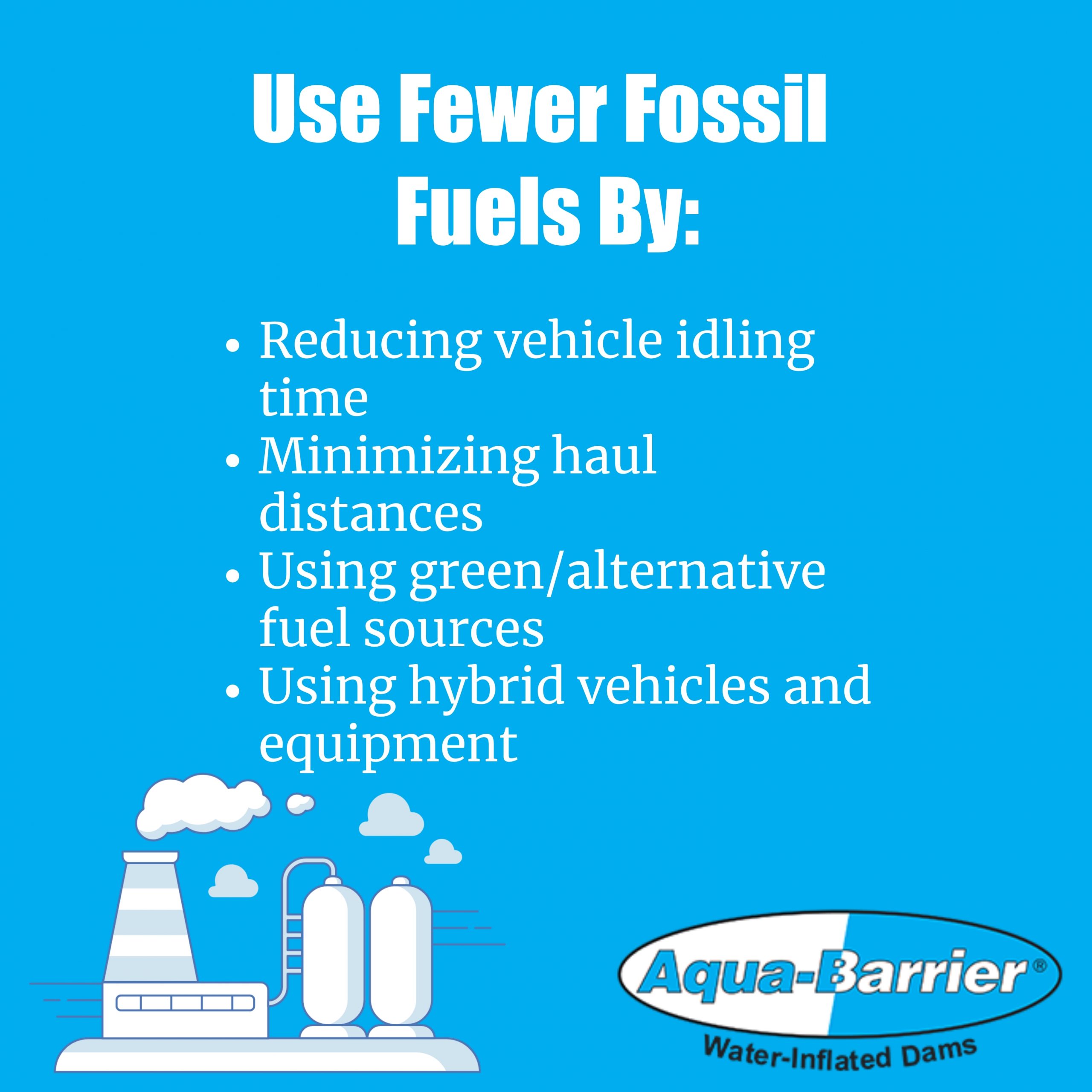Construction projects have a significant impact on the world’s environment. In fact, every aspect of construction has some measurable impact–from mining processes used for materials, to the waste produced by the project and how it is disposed of. It is important to understand and take initiative to decrease the environmental impact of construction projects which harm the water, ground, and air we breath.
Limit the Environmental Impact of Construction
Construction contributes to environmental damage both on a global scale, as well as locally. It is important to learn what impact construction causes in order to scale back damage. Here are five ways to help limit environmental impact during your construction project.
1) Limit Fuel Usage
Construction firm’s biggest negative impact on the environment is caused by the burning of fossil fuels, like gas and diesel. Every construction project results in these gas emissions of carbon dioxide, methane and other waste products that pollute the air and are believed to contribute to global warming. In order to limit fuel usage:


- Minimize haul distances
- Reduce vehicle idling time
- Use greener, alternative fuel sources
- Use hybrid equipment
By striving to limit your construction project’s fuel usage, you can help decrease negative emission and pollutants and improve air quality.
2) Reduce Noise
Construction noise is a major source of noise pollution. Most of this noise is produced by machinery in site preparation, demolition, and landscaping. Many construction sites are located near homes and businesses and can noise complaints might be likely. Be sure, when beginning a construction project, to be considerate and adhere to any local construction time restrictions. Many people might not appreciate work and loud construction noises beginning at six A.M. on a Saturday. Another good idea is to send a letter to neighbors before beginning work to alert them to how long the project will last and what to expect.
3) Properly Dispose of Waste
In 2014, there was over 534 million tons of construction material waste in the United States. Demolition waste makes up 90% of total debris, and much of this waste is disposed of in landfills or through incineration. Both these methods harm the environment. By salvaging, reusing and recycling existing materials, you can cut down on materials harming our precious earth. Hardware, appliances, and fixtures can be recycled or reused. These can be used on future projects or donated to those who need them. Brick and concrete can be recycled and used as fill or driveway bedding, and metals and wood are valuable commodities that can be recycled.
4) Utilize Reusable Technology
There are a lot of green building options that help you decrease a negative environmental impact. For example, inflatable water dams help combat erosion, water runoff, and prevents sedimentation. While sandbags and traditional dewatering solutions are costly and time-consuming, inflatable water dams are reusable and take up little space. They are easier to install and environmentally friendly by using existing water already on your worksite.
5) Expedite Your Project
By accelerating your construction project, you reduce traffic disturbances and also reduce associated emissions and fuel costs. Establish firm completion goals and implement these measures to stay on track. Expediting the construction process helps reduce noise pollution, as well as cutting back on traffic duration and improves safety zones.
Decrease Your Environmental Impact
There are numerous ways to decrease the negative environmental impact on your construction project. By utilizing green and reusable technology, keeping project length to a minimum, limiting fuel use, along with other suggestions listed, you are sure to make a difference in the impact of the environment.
To learn more about how you can decrease the environmental impact of construction projects, Contact Us.


